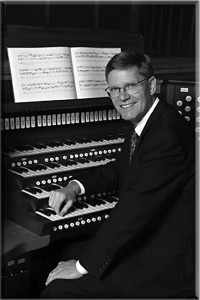 As I was writing my book about the life of Richard Purvis—a California contemporary of John Steinbeck who composed literary music for the organ with a colorful, cinematic character—I was reminded how hard the task faced by writers of books really is. It certainly was for Steinbeck, one of my favorite writers of books on any subject. Steinbeck’s language has always sounded like literary music to my ears, but I wasn’t sure why that was before reading about the background of The Grapes of Wrath. I knew Steinbeck wrote the novel in Los Gatos, not far from Palo Alto, where I live. Recently I learned that he listened to Bach’s Art of the Fugue as he wrote. No wonder the literary music of Steinbeck’s masterpiece conveys such convincing counterpoint. He had Bach’s masterpiece in his head as he was wove the literary music of the Joads, California, and Depression-era America into his great verbal fugue.
As I was writing my book about the life of Richard Purvis—a California contemporary of John Steinbeck who composed literary music for the organ with a colorful, cinematic character—I was reminded how hard the task faced by writers of books really is. It certainly was for Steinbeck, one of my favorite writers of books on any subject. Steinbeck’s language has always sounded like literary music to my ears, but I wasn’t sure why that was before reading about the background of The Grapes of Wrath. I knew Steinbeck wrote the novel in Los Gatos, not far from Palo Alto, where I live. Recently I learned that he listened to Bach’s Art of the Fugue as he wrote. No wonder the literary music of Steinbeck’s masterpiece conveys such convincing counterpoint. He had Bach’s masterpiece in his head as he was wove the literary music of the Joads, California, and Depression-era America into his great verbal fugue.
As a concert organist, I’m used to practicing my art long hours each day. Most writers of books do as well, but Steinbeck wrote The Grapes of Wrath at an incredible pace. Two- to three-thousand words at a sitting is extraordinary, a fact I came to appreciate when I was writing my biography of Purvis. I couldn’t help speculating that certain subjects of Purvis’s literary music, particularly his “Night in Monterey” for organ, would have appealed to the author of The Grapes of Wrath. After all, the literary music of Julia Ward Howe’s “Battle Hymn of the Republic” inspired Steinbeck’s title and was reproduced on the endpapers when the book was published. How many other writers of books ever paid similar homage to a specific piece of music?
I read about how Steinbeck liked listening to Bach in Working Days, the collection of daily journal entries Steinbeck made to warm up before resuming work on The Grapes of Wrath. It occurred to me that, for writers of books, this process is like organists running through scales and arpeggios at the piano before beginning daily organ practice. To make music on the organ—or create literary music at a desk—requires limberness, dexterity, and well-developed skill. So I wasn’t surprised to hear from the organist at Steinbeck’s Episcopal church in Salinas that the author of The Grapes of Wrath took piano lessons as a boy and sang in the children’s choir. Though he attended Stanford University 50 years before I did, Steinbeck and I have much in common. We both like science, enjoy travel, and love Bach and the beach. We’re both from California, a state that has produced distinctive literary music, from Richard Purvis to the Beach Boys, over the years. Other writers of books hailed from sunny California, but for me, none was a literary music maker quite like the author of The Grapes of Wrath.


http://pluggedinhomeschool.com/obasan-book-review.php
The Grapes of Wrath and Steinbeck’s Literary Music | Steinbeck Now